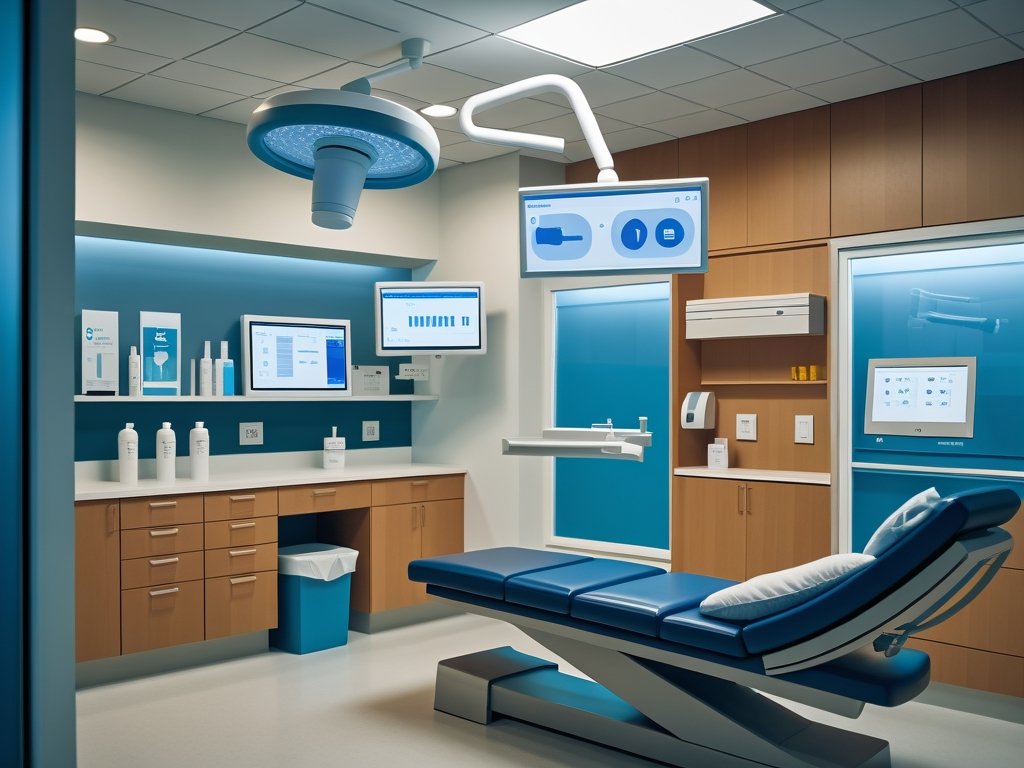
Urological health is essential to overall well-being, yet it’s often overlooked until problems arise. The urinary system — composed of the kidneys, ureters, bladder, and urethra — is responsible for filtering waste, regulating fluids and electrolytes, and controlling urination. Maintaining this system through simple daily habits can help prevent common issues such as urinary tract infections (UTIs), kidney stones, bladder dysfunction, and even some prostate conditions.
Building a daily routine that supports urinary health doesn’t require radical changes. Instead, it relies on small, consistent habits that collectively contribute to long-term benefits. In this article, we explore effective lifestyle strategies to promote optimal urological function for both men and women.
Hydration, Nutrition, and Urination Practices
Daily choices around what you drink, eat, and how you urinate can significantly impact the health of your urinary system. The following habits form the foundation of good urological health:
- Drink enough water: Staying hydrated helps the kidneys flush toxins and bacteria from the urinary tract. Aim for 6–8 cups of water daily, adjusting for activity level and climate.
- Limit irritants: Reduce intake of caffeine, alcohol, and artificially sweetened beverages, which can irritate the bladder and increase urgency.
- Eat a balanced diet: Include high-fiber foods to prevent constipation, which can exert pressure on the bladder. Potassium-rich foods like bananas and leafy greens support kidney health.
- Avoid excessive salt and protein: High sodium intake can raise calcium levels in urine, contributing to stone formation. Moderating animal protein can help balance uric acid levels.
- Practice regular urination: Don’t hold in urine for long periods, as this can stretch the bladder and increase infection risk. Try to urinate every 3–4 hours during the day.
These straightforward behaviors form a solid baseline for maintaining a clean, well-functioning urinary system. They’re especially important for people with a history of kidney stones, UTIs, or bladder issues.
Personal Hygiene and Bladder Health
Proper hygiene and toileting practices play a crucial role in preventing infections and supporting urinary comfort. This is particularly important for women, who have a shorter urethra and are more prone to infections.
- Wipe front to back: After using the toilet, especially for women, always wipe from front to back to avoid transferring bacteria from the rectum to the urethra.
- Urinate after sex: This helps flush out any bacteria that may have entered the urethra during intercourse.
- Use gentle hygiene products: Avoid douches, perfumed soaps, and strong cleansers near the genital area. These can disrupt natural pH and irritate sensitive tissue.
- Wear breathable underwear: Cotton fabrics and loose-fitting clothing allow airflow and reduce moisture buildup that can promote bacterial growth.
- Address incontinence early: Don’t ignore leakage or urgency. Bladder training, pelvic floor exercises, or medical evaluation can help prevent worsening symptoms.
These hygiene-based habits can reduce the risk of irritation, infection, and discomfort while also promoting a healthy and balanced microbial environment around the urinary tract.
Movement, Sleep, and Stress Management
Physical activity, rest, and emotional balance are also vital for maintaining urinary health. These elements support muscle tone, immune function, and bladder control.
- Stay active: Regular exercise improves blood flow to the pelvic region, strengthens core and pelvic floor muscles, and reduces risk of chronic disease.
- Get enough sleep: Poor sleep can lead to hormonal imbalances that affect kidney and bladder function. Aim for 7–9 hours per night.
- Manage stress: Chronic stress can contribute to urinary urgency, incontinence, or pelvic floor tension. Incorporate mindfulness, breathing exercises, or light yoga into your daily routine.
- Pelvic floor exercises: Daily Kegels help strengthen the muscles responsible for urinary control and are beneficial for both men and women, especially with aging.
Long-Term Benefits and Proactive Care
Urological issues often develop slowly and can be prevented or mitigated through proactive care. Building healthy routines today lays the groundwork for avoiding more serious problems later in life.
- Routine checkups: Periodic visits to a urologist or primary care provider can help catch early signs of kidney or bladder problems.
- Know your family history: Some urinary conditions have genetic components. Informing your doctor can help guide preventive care.
- Don’t ignore symptoms: Early signs like burning, urgency, or changes in urine color should not be dismissed. Timely treatment can prevent complications.
By embracing simple daily habits and staying attentive to bodily cues, individuals can actively protect their urinary health. These routines require little time but offer lasting benefits — making them a smart investment in lifelong wellness.
Recent articles about tips and daily habits
-

Daily Breathing Pauses to Ease Flow Oversensitivity
Daily Breathing Pauses to Ease Flow Oversensitivity The modern world relentlessly demands our attention. From constant notifications to overflowing to-do lists, we’re often caught in…
-

Urological Wellbeing Through Food Intention
Urological Wellbeing Through Food Intention The urinary system, encompassing kidneys, bladder, ureters, and urethra, is often overlooked in discussions of overall health until problems arise.…
-

Using Light Movement to Clear Residual Tension
Introduction We live in a world that demands constant adaptation, both physically and emotionally. This relentless pressure often leaves us holding onto tension – not…
-

Flow Forecasting for Men With Busy Schedules
Men leading busy lives often face a relentless cycle of work, family commitments, social obligations, and personal pursuits. This constant demand on their time and…
-

How to Establish Bladder-Aware Digital Breaks
Our modern world is built on constant connectivity. From work demands to social media notifications, we are bombarded with stimuli vying for our attention. This…
-

Mindful Kitchen Habits to Avoid Trigger Patterns
The kitchen, often considered the heart of the home, can simultaneously be a source of nourishment and, surprisingly, a breeding ground for unhealthy patterns. We…
-

How to Recalibrate After Unexpected Urge Events
Unexpected urges – those sudden, intense cravings or impulses that can derail our best-laid plans – are a universal human experience. They aren’t necessarily signs…
-

Protecting Prostate Comfort in Loud Environments
The prostate gland, often discussed in relation to aging men’s health, plays a crucial role beyond reproductive function. It influences urinary control and can be…
-

Body Listening Practices for Renal Tension Relief
The kidneys are remarkable organs, silently working 24/7 to filter waste products from our blood, regulate fluid balance, and maintain essential minerals. We often don’t…
-

Hydration Sequencing Based on Flow Behavior
Hydration is often viewed as a simple act – drink when thirsty. However, optimizing hydration for performance, recovery, or even general wellbeing demands a more…
Want practical tips for healthier daily habits? Try searching our site.
